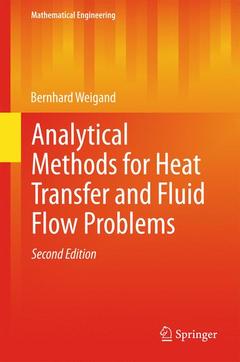Description
Analytical Methods for Heat Transfer and Fluid Flow Problems (2nd Ed., 2nd ed. 2015)
Mathematical Engineering Series
Language: English
Subjects for Analytical Methods for Heat Transfer and Fluid Flow Problems:
Support: Print on demand
Description
/li>Contents
/li>Biography
/li>Comment
/li>
This book describes useful analytical methods by applying them to real-world problems rather than solving the usual over-simplified classroom problems. The book demonstrates the applicability of analytical methods even for complex problems and guides the reader to a more intuitive understanding of approaches and solutions.
Although the solution of Partial Differential Equations by numerical methods is the standard practice in industries, analytical methods are still important for the critical assessment of results derived from advanced computer simulations and the improvement of the underlying numerical techniques. Literature devoted to analytical methods, however, often focuses on theoretical and mathematical aspects and is therefore useless to most engineers. Analytical Methods for Heat Transfer and Fluid Flow Problems addresses engineers and engineering students.
The second edition has been updated, the chapters on non-linear problems and on axial heat conduction problems were extended. And worked out examples were included.




